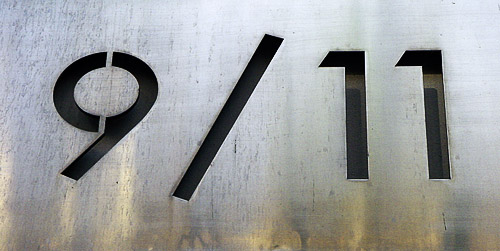What do Barack Obama, Hillary Clinton and John McCain have in common? All three are ontologically white males. No one can become the leader of the world’s most powerful country (empire?) unless they are committed to what male whiteness symbolizes within the colonial process.
Saying that Obama is ontologically white or that Clinton is ontologically male is neither an issue of race nor gender. The question is not if Obama is “black enough” or if Clinton became too masculine in order to play with the “good ol’ boys” in the Senate. Such speculations are nonsense chatter occurring mainly among white media pundits who fail to understand the depths of this “historic election.” Barack’s whiteness and Hillary’s maleness raise postcolonial concerns and questions, and as such, make this an issue of class.
The power of corporate monies contributed to candidates will subjugate the collective will of both feminists and the black community, regardless if “one of their own” wins the election. The real ethical question to ponder is how soft monies and PACs (Political Action Committees) subvert and pervert the proper relationship between economics and electoral democracies.
It does not matter if a black man or a white woman is elected president. If the national politics and economics of the captains of industry were to be threatened with a reversal caused by the needs of U.S. marginalized communities–be they blacks, women, or poor whites–the future president would rally all the forces at his or her disposal to maintain the prevailing economic power structures that exist, even if those structures are detrimental to communities that share their gender or skin pigmentation.
On the international scene, whoever the future president may be, it will be her or his job to protect the interests of the empire abroad. Therefore, in terms of U.S. global economic policies, it really doesn’t matter if we elect a black man, a white woman or conclude that all the change we really need is another white man.
At this point, our democratic system has reduced our choice among three pro-empire individuals who throughout this political campaign have shown no significant difference in their commitments to protecting the rights of multinational companies to expand globally. When push comes to shove in the global arena, all three will protect the interests of Exxon, Microsoft and Wal-Mart–even at the expense of establishing justice and even at the cost of committing U.S. troops.
So far in this campaign, all three have ignored the fact that the gap between the rich and poor has more than doubled between 1980 and 2005. All three candidates will defend free-market policies and none will seriously address the undemocratic distribution of wealth, resources and privileges in this country.
I have no doubt that both Clinton and Obama would provide a “kinder and gentler” empire than McCain, but in the final analysis, they will be the black or female face of a global neoliberalism that continues to privilege the few at the expense of the vast majority of the world’s population.
Throughout this election, we have yet to focus on these classist concerns. Instead we have proudly proclaimed that we are now in a post-racist and post-sexist society, since how can we be racist or sexist when whites are voting for a black man and a white woman in record numbers?
This election cycle provides the illusion that as a country we have “arrived.” Whoever gets elected, however, this country’s distribution of income and opportunities will still fall along racial and gender lines. And at the end of four years (or eight), I predict that the disparity between the rich and the poor (who are predominately of color and female) will grow larger.
It does not have to be this way. Any of the three candidates can bring about radical change, but because class has not been an issue in this campaign, it will not be an issue during the presidency.
First Published in Ethics Daily



